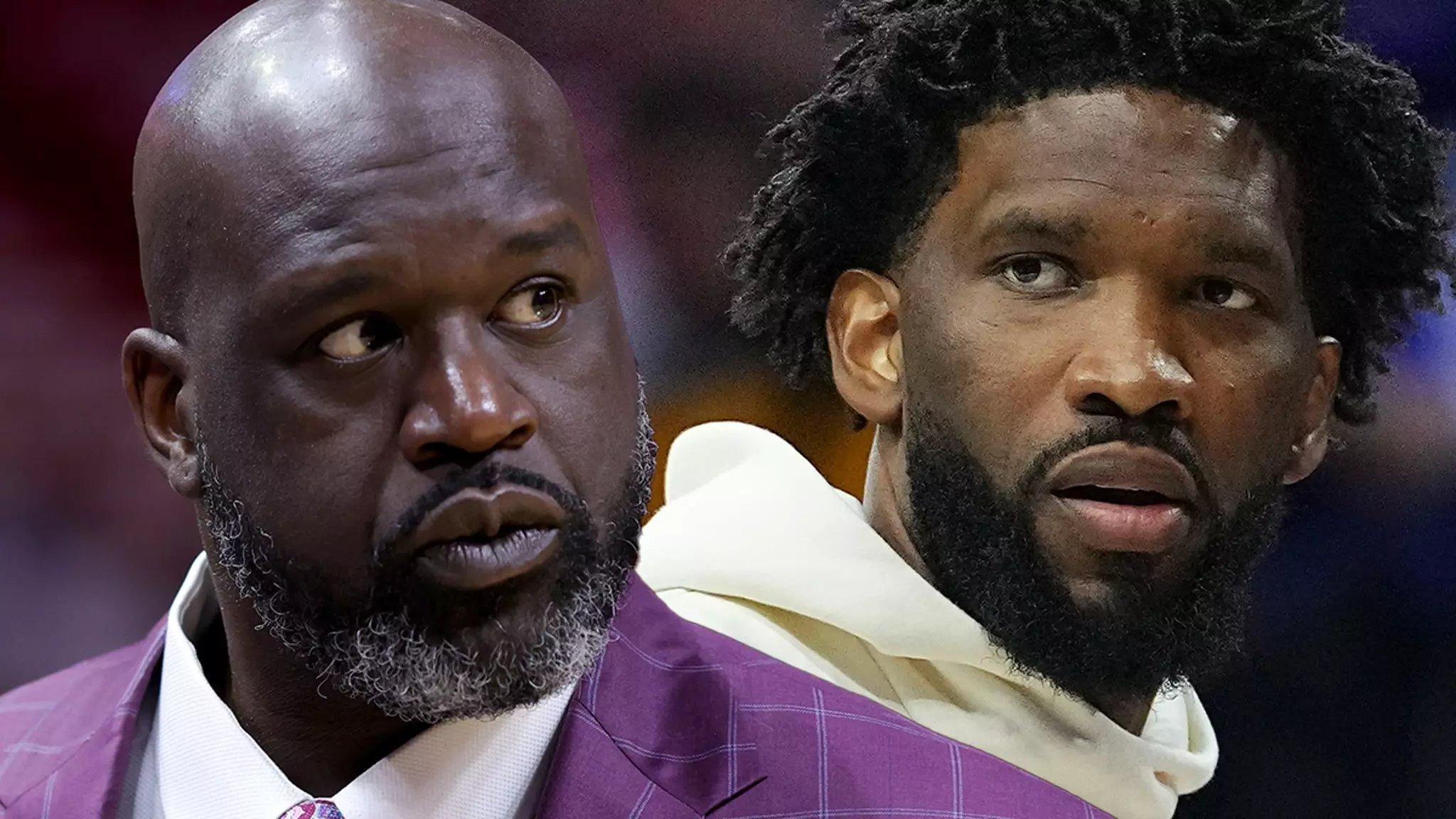In the realm of basketball, few names ring as loudly as Shaquille O’Neal’s, a legend whose dedication and competitive spirit shaped a generation of the game. Recently, Shaq directed his attention toward Philadelphia 76ers’ star Joel Embiid, critiquing him for what he perceives as a lack of commitment. O’Neal boldly tagged Embiid as “soft” for opting out of back-to-back games, which is a significant accusation from a former player who achieved great heights through relentless effort and resilience. This scrutiny raises questions about the expectations placed on modern athletes compared to those of previous generations and what it means to embody a championship mentality.
Joel Embiid’s decision to sit out the season opener against the Milwaukee Bucks and then subsequently miss the following games has stirred considerable controversy. His reasoning, attributed to “left knee injury management,” underlines a growing trend in sports where player health takes precedence over traditional playing expectations. Whereas O’Neal played through injuries and still competed at an elite level throughout his career, contemporary players like Embiid are now navigating an atmosphere that prioritizes longevity over sheer competitiveness. This cultural shift reflects a broader perspective regarding athlete health, but it also raises criticisms from traditionalists who cherish the competitive spirit.
O’Neal’s comments revealed an underlying belief that to attain greatness, a player must embrace the grind and continuously strive to remain on the court. His assertion that Embiid expresses a lack of desire to be “that guy” is indicative of a mindset that champions relentless work ethic above all else. For O’Neal, basketball is not only about physical prowess but also about mental toughness and the relentless pursuit of excellence. This perspective prompts fans and analysts alike to consider what it truly means to be a franchise player. As the line blurs between self-care and the expectation to compete, players like Embiid find themselves balancing personal well-being with societal and fan expectations.
O’Neal’s statistical argument—that if Embiid can score 70 points in a single game when riled up, he possesses the potential to contribute consistently—underscores a common frustration among fans and analysts alike regarding elite athletes’ motivations. The questioning of Embiid’s engagement is further complicated by the NBA’s investigation into whether his absences fall under the league’s player participation policy designed to curb “load management” practices. This scrutiny not only impacts Embiid’s reputation but also the integrity of the game itself, as it puts a spotlight on the growing trend of resting players for strategic reasons, often at the expense of fan enjoyment and engagement.
As the league evolves, so too must the narratives surrounding its stars. The friction between Shaquille O’Neal and Joel Embiid illustrates a compelling discourse about the nature of competition and the pressures athletes face. While embodied toughness remains a hallmark of basketball greatness, a careful balance must be struck with the knowledge of physical limitations. The outcome of this dialogue will shape how both fans and players redefine the standards of commitment and excellence in an ever-evolving game. Whether Embiid resonates with O’Neal’s critiques or navigates his own path, one thing is certain: the conversation around player longevity and impact will continue as a dynamic force within the sport.

